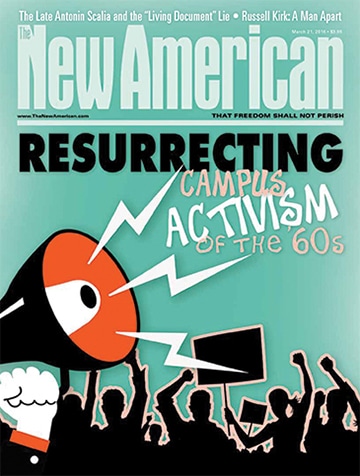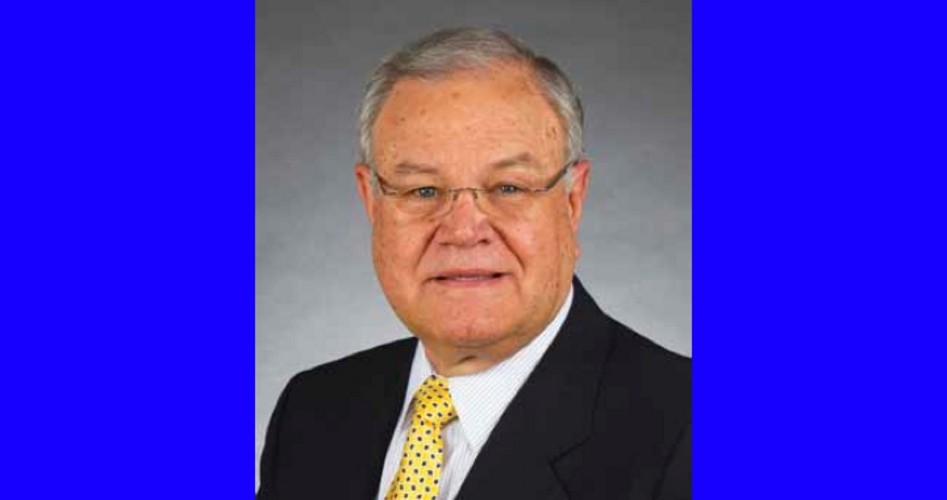A Unique Oil Man in a Tough Business
It doesn’t take long to learn that KimRay, Inc., headquartered in Oklahoma City, is a different sort of oil company — a much different sort. Headed up by Tom Hill (shown) until his retirement last year (but who still serves as chairman), the company’s mission statement is simple: Take care of customers, take care of employees, and take care of stockholders. But it ends with this:
We believe it is by God’s grace and provision that KimRay has endured. He has been faithful in the past and we trust Him for our future.
This contrasts startlingly with the media-promoted notion that businessmen, especially those in the oil patch, are greedy, selfish, insensitive, and self-aggrandizing ogres. But Hill’s own actions, like those of many other businessmen, demonstrate that he has a heart shaped by biblical principles.
Hill has been in the oil business since 1971, starting out working for his father-in-law, who founded the company in 1948. An “upstream control manufacturer” of tools used at the wellhead, Hill has seen six — no, seven — cycles in the oil business. But this one is the most difficult, Hill told The New American.
In the downturn in 1985-86 Hill’s company made a commitment to keep its people employed and fully paid, even when there was insufficient work. Some went to work for the city while others went to work for local charities. But KimRay made up any difference between their regular salaries for the company and what they earned in their positions away from the company. Some 90 people were affected. Hill said it was the right thing to do, as a previous downturn that forced layoffs caused so much personal pain and anguish that he vowed to do the best he could to keep that from happening again.
During the “fat” years (see Genesis 41:25-36) his company put away so many reserves to offset the coming “lean” years that his company got sideways with the IRS, which taxed those resereves as “undistributed surplus.” Hill and his company paid the taxes and then sued to get them back. After an IRS agent from Washington had spent months combing through the company’s books, she returned to headquarters with the recommendation that the IRS return all the excessive taxes, which it did.
Unfortunately, the reserves that KimRay had put away to offset the present downturn were claimed by shareholders who were beginning to retire, putting the company into a serious financial situation. Late February the company announced it was shrinking its workforce by 10 percent, affecting between 60 and 65 individuals.
KimRay is an “open book” company (where the financials are open to every employee), and Hill has weekly meetings during which his team is kept current on how well, or poorly, the company is doing. The challenge remains twofold: cutting costs, and diversifying the company into new but related fields that would serve to sustain the company and return it to profitability.
Special teams were created to find places to cut expenses. Hill related a small example: The company used to buy Styrofoam coffee cups in bulk. But one team suggested that employees bring their own cup to work. Bingo! That saved the company $2,000 a year.
That’s not much for a company that employs 650 people, but it’s typical of the approach and the relationship among Hill’s employees that goes beyond most companies.
When asked for his predictions about the future, not only of the price of oil, but of his company, Hill’s response was remarkable: He didn’t know, and he didn’t care. He trusts in God. Actions are his, results are His.
After previous downturns that KimRay had survived, Hill and his team would look back to see what blessings and gifts they enjoyed, and to see what they could learn from the experience. He doesn’t do that anymore. Instead he looks forward to the blessings to come. Hill sleeps well at night.
When asked if his company hires just believers, Hill said no. KimRay hires the best people it can find, possessing the skills needed, and he expects them to learn the reason why the company behaves the way it does on their own. Hill quoted St. Francis of Assisi: “Preach the Gospel; if necessary, use words.”
Photo: Tom Hill


